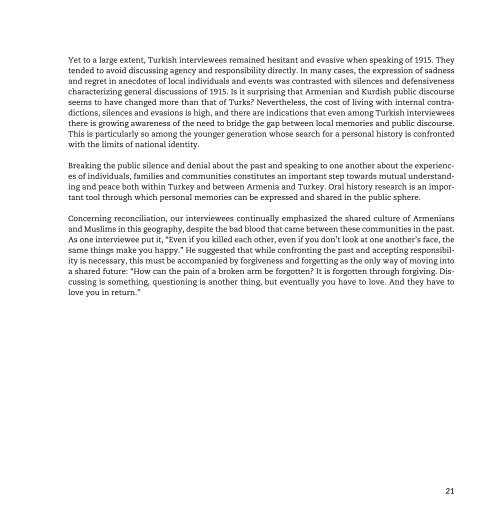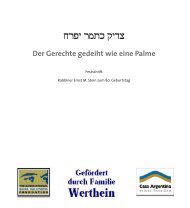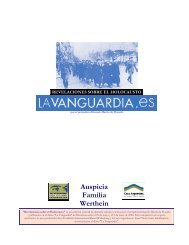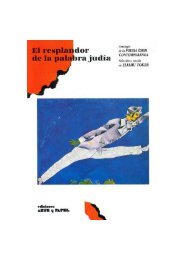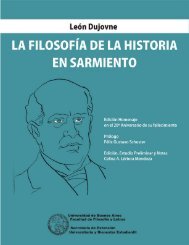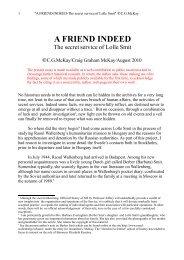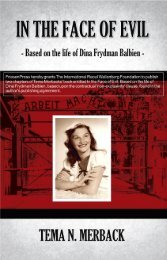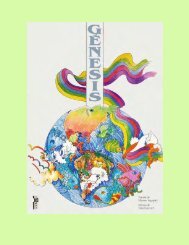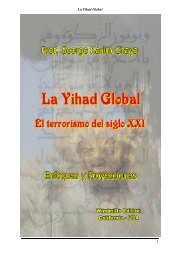Speaking to One Another - The International Raoul Wallenberg ...
Speaking to One Another - The International Raoul Wallenberg ...
Speaking to One Another - The International Raoul Wallenberg ...
- No tags were found...
Create successful ePaper yourself
Turn your PDF publications into a flip-book with our unique Google optimized e-Paper software.
Yet <strong>to</strong> a large extent, Turkish interviewees remained hesitant and evasive when speaking of 1915. <strong>The</strong>ytended <strong>to</strong> avoid discussing agency and responsibility directly. In many cases, the expression of sadnessand regret in anecdotes of local individuals and events was contrasted with silences and defensivenesscharacterizing general discussions of 1915. Is it surprising that Armenian and Kurdish public discourseseems <strong>to</strong> have changed more than that of Turks? Nevertheless, the cost of living with internal contradictions,silences and evasions is high, and there are indications that even among Turkish intervieweesthere is growing awareness of the need <strong>to</strong> bridge the gap between local memories and public discourse.This is particularly so among the younger generation whose search for a personal his<strong>to</strong>ry is confrontedwith the limits of national identity.Breaking the public silence and denial about the past and speaking <strong>to</strong> one another about the experiencesof individuals, families and communities constitutes an important step <strong>to</strong>wards mutual understandingand peace both within Turkey and between Armenia and Turkey. Oral his<strong>to</strong>ry research is an important<strong>to</strong>ol through which personal memories can be expressed and shared in the public sphere.Concerning reconciliation, our interviewees continually emphasized the shared culture of Armeniansand Muslims in this geography, despite the bad blood that came between these communities in the past.As one interviewee put it, “Even if you killed each other, even if you don’t look at one another’s face, thesame things make you happy.” He suggested that while confronting the past and accepting responsibilityis necessary, this must be accompanied by forgiveness and forgetting as the only way of moving in<strong>to</strong>a shared future: “How can the pain of a broken arm be forgotten? It is forgotten through forgiving. Discussingis something, questioning is another thing, but eventually you have <strong>to</strong> love. And they have <strong>to</strong>love you in return.”21


